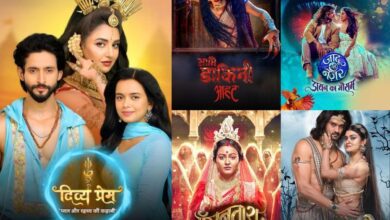‘Dangal’ Movie Review: Bollywood Ends 2016 On High Note!

As a study of single-minded dedication, Nitesh Tiwari’s biopic Dangal could not have had a a more apt lead: an actor known for his perfectionism and deep involvement with the projects he chooses. Aamir Khan is perfectly cast as Mahavir Singh Phogat, the remarkable head of a singular family of female wrestlers from Haryana, including the medal-winning Geeta and Babita. Dangal is a chronicle of the industriousness, perseverance and personal sacrifice that produce sporting champions, but it is above all a tribute to obsession. Except for a few scenes, every moment in the 161-minute film reflects Phogat’s dream of making his daughters worthy of winning a gold medal for India. This is the kind of movie in which even small talk involves the words wrestling, medal, hard work, victory, and India.

Dangal’s themes are set in the opening sequence itself. There’s a wrestling match on television, and Mahavir has abandoned his office work to offer advice to the players grappling on the screen. India will never win a gold medal at this rate, he grumbles, and a burly new employee (Vivan Bhatena) interrupts him: what do you know about wrestling anyway? He finds out to his peril that the man with the brusque manners and the carefully rationed smile isn’t just a former professional wrestler, but somebody who is committed enough to the sport to achieve the unthinkable.
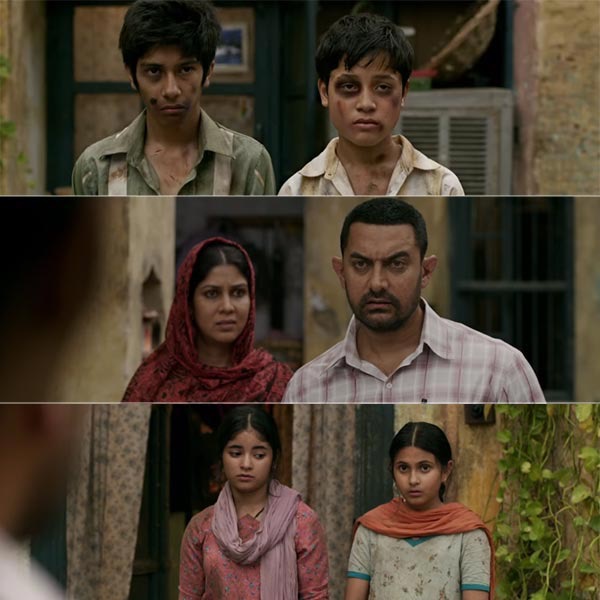
Mahavir turns his perceived social handicap – all daughters and no sons – into his greatest strength. He doesn’t believe in Geeta (Zaira Wasim) and Babita (Suhani Bhatnagar) until he learns one day that they have beaten up two boys who were harassing them. (The screenplay, credited to Tiwari, Shreyas Jain, Nikhil Mehrotra and Piyush Gupta, is led by this seemingly fleeting incident that eventually proves to be momentous.) Mahavir puts his daughters through the wringer, ignoring the protests of his wife Daya (Sakshi Tanwar in an ornamental role), the jeers of his neighbours, and the complaints of his children.
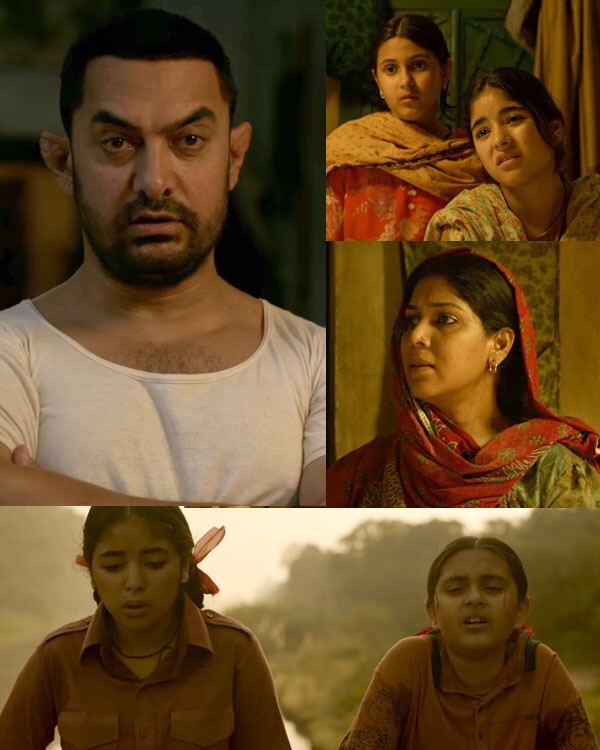
The girls despise their 5am routine, new diet and the shirts and shorts they are forced to wear in order to train better. When they snivel that the mud from the makeshift wrestling pit that Mahavir has carved out of his fields is giving them lice, Mahavir has their hair cut short.
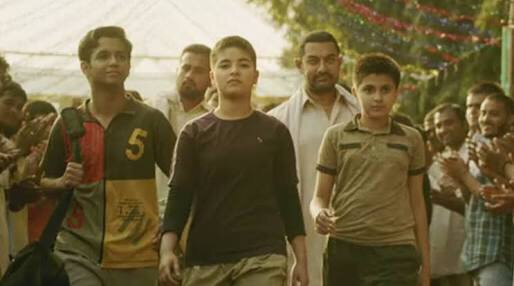
Mahavir’s tough-love approach pays off when Geeta easily defeats boys in local tournaments and emerges as the state champion. The movie focuses on the relationship between Mahavir and his first-born, who is still far away from becoming the first female Indian wrestler to win the gold medal in the 55 kg freestyle category at the 2010 Commonwealth Games. Before she conquers the mat, Geeta has to deal with a new routine that is in opposition to the tricks her earthy father has taught her. Every account of heroism needs a villain, and Dangal unearths one in the coach Pramod (Girish Kulkarni), who demands that Geeta disavow her previous training.
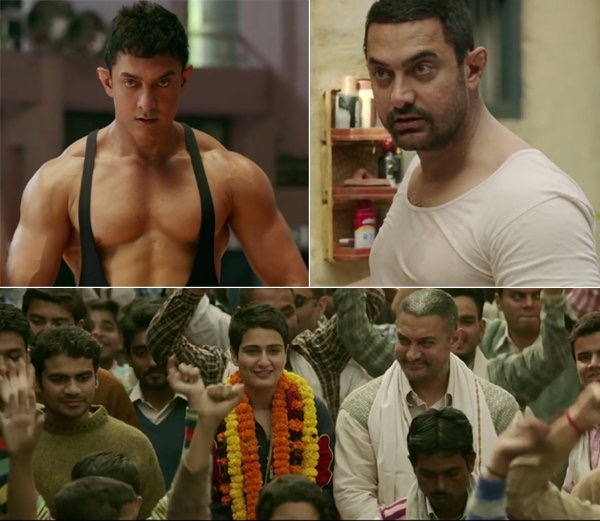
The tensions between father and daughter at this point offer a chance to provide a psychological understanding of Geeta’s journey, but Dangal’s filmmakers let the opportunity slip. Unlike sports biopics in the West, which value the importance of the athlete’s quest for personal achievement that is above patriotism and national glory, Dangal is clear that the only reason Mahavir risks social opprobrium is to win a medal for India. There is nothing shameful about individual excellence, but the idea is simply not entertained by ‘Dangal’, whose nationalistic fervour reaches its nadir or zenith, take your pick, in the climax.
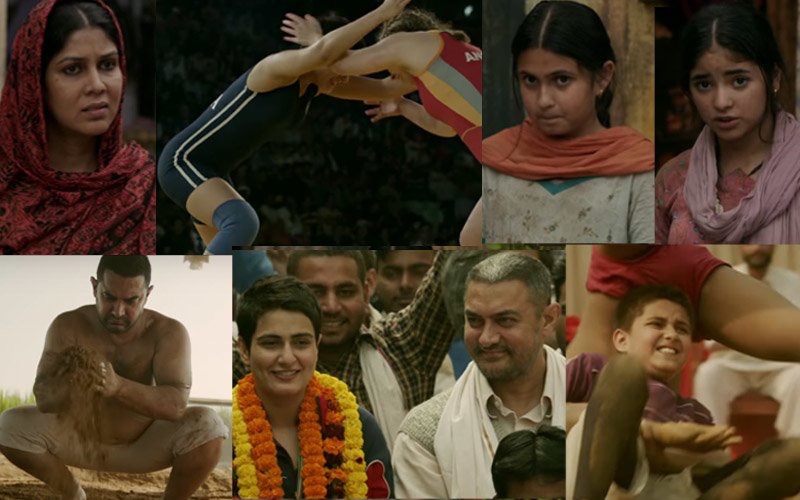
The best bits are in the first 80-odd minutes, which provide an absorbing portrait of the family dynamics that allow Mahavir to steamroll domestic and external opposition. Geeta and Babita quickly realise that rebelling against their father is useless, and one scene crudely reminds us that without his obstinacy, the girls would have been married off at the first opportunity. Again, it is Mahavir who delivers the progressive message that female athletes must be encouraged and supported as strongly as males.
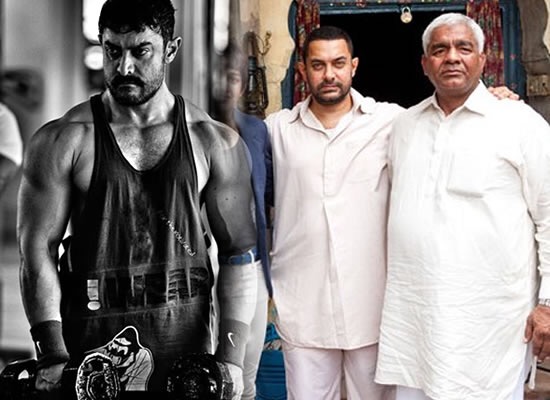
A movie with less on-the-nose writing and greater interiority would have devoted more time to understanding Mahavir’s radicalism. What was he thinking, really? Khan’s nuanced and compelling performance offers snatches of Mahavir’s mind, but the movie never stops long enough to probe his thoughts on the utter insanity of his project.

The first sports-based film of 2016 was ‘Saala Khadoos’, about a boxing coach and his female slumdog protégé. In ‘Sultan’, Salman Khan played a wrestler who exorcised his personal demons to regain his glory. ‘Dangal’ leaves the other films far behind in its portrayal of the rigours of training and depiction of the sport. Deftly shot by Setu, the film glows with the golden-brown hues of rural Haryana. The wrestling sequences are highly credible and exciting (national-level coach Kripa Shankar Bishnoi trained Khan and the girls), and the decision to allow Geeta’s crucial matches to play out in full rather than being edited down pay rich dividends.
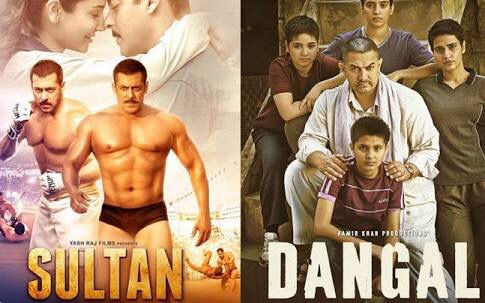
Tiwari’s ability to handle young talent, previously seen in his films ‘Chillar Party’ and ‘Bhoothnath Returns’, is never more evident than in the two girls who play the younger versions of Geeta and Babita. Fatima Sana Shaikh and Sanya Malhotra are convincing as the older wrestlers, but the scene stealers are Zaira Wasim and Suhani Bhatnagar, who play their younger selves. A delightful foil to the hard-working girls is their cousin Omkar (Ritwik Sahore in the younger role and Aparshakti Khurana in the older role), who is ramrodded by Mahavir into providing the girls with a sparring partner.

Nobody turns Mahavir down, and the movie pays handsome tribute to his obduracy. Every age produces the cinema it deserves, and with its insistence on absolute obedience to an authoritarian figure, ‘Dangal’ is inadvertently a reflection of our times. Daddy truly does know best, and ‘Dangal’ harbours no doubt whatsoever that his daughters are wise not to question him.



